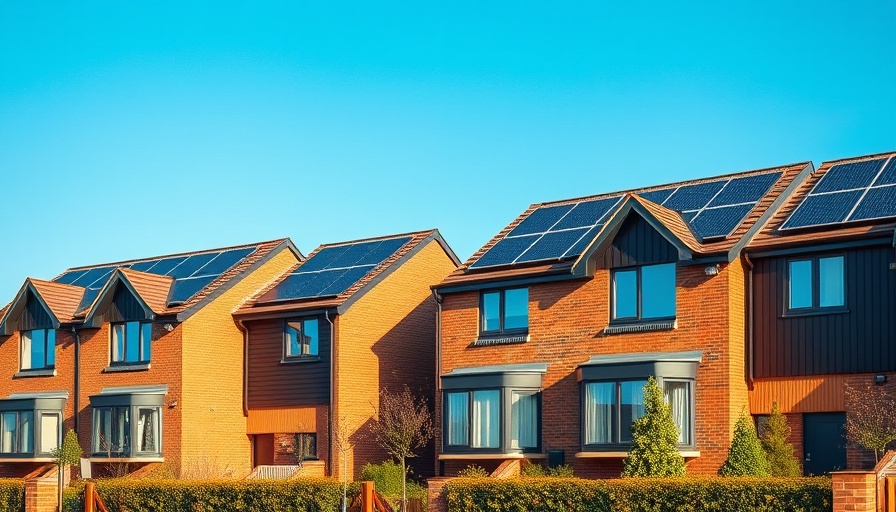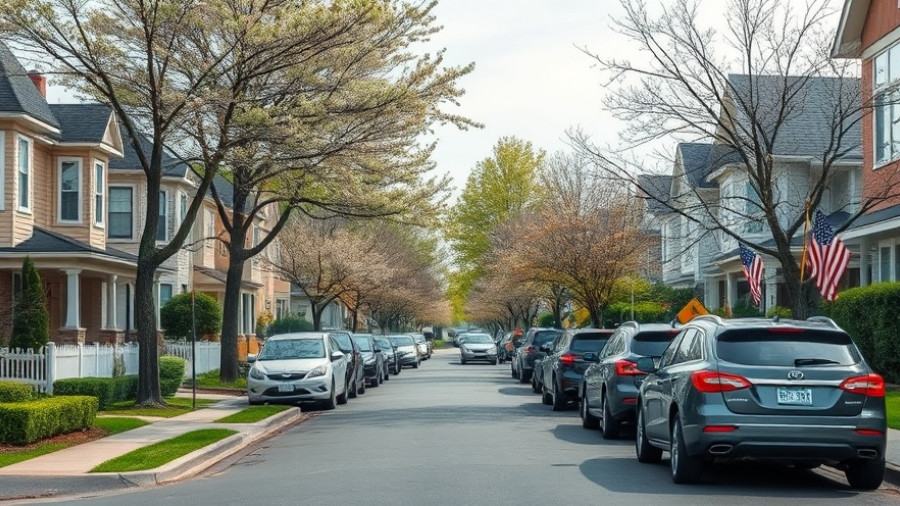
Do New Builds Hold Their Value? A Closer Look
For many young homebuyers in London, the quest for a new build home represents both a dream and a dilemma. The contemporary charm of newly constructed properties paired with the luxury of modern features is enticing. However, the looming question remains: Do new builds lose value? Within the kaleidoscope of real estate, understanding the factors that impact the value of new builds is critical for making an informed decision.
Understanding the Dynamics of New Builds
New builds, defined as homes that have recently been constructed with no prior owners, are a response to increasing housing demands. These properties often showcase energy-efficient designs and cutting-edge technology, catering to a tech-savvy generation. However, there’s more beneath the surface. Recent studies indicate that new builds can depreciate by up to 7% in their initial years, particularly once they lose their 'new' status. While the charm of fresh paint and pristine fixtures can dazzle potential owners, it's essential to weigh this against long-term value retention.
What Affects Property Value
Various factors determine whether a new build will retain its market value. Economic conditions, surrounding infrastructure development, and market saturation can significantly influence property worth. For instance, if a new development springs up in an area with limited demand, the risk of depreciation increases. Buyers should keep a vigilant eye on local market trends and adjust their expectations accordingly. Insights from property analysts suggest searching for locations with planned infrastructural improvements, as these can bolster value.
Pros and Cons: Weighing Your Options
Young homebuyers often weigh the pros and cons of new builds against established properties:
Pros: New builds come with up-to-date features, low maintenance, and energy efficiency. Additionally, they often include warranties that can provide peace of mind to new homeowners.
Cons: They can be sold at a premium, and issues like 'snagging' (minor defects) can plague new homes. Moreover, uniformity in design might diminish individuality, making them harder to sell later.
Practical Insights for Prospective Homeowners
When considering the purchase of a new build, prospective homeowners should address a few practical considerations:
Research the Market: Look at local property trends and saturation levels. Knowing whether the neighborhood can sustain additional new builds will help assess potential future depreciation.
Consult Experts: Engaging with local real estate agents or property consultants can provide valuable insights into not just properties, but the future of the entire community.
Plan for the Future: Think ahead about location and lifestyle: Will the area develop in the coming years to maintain or increase property values?
Your Next Steps
Investing in a new build can be a significant opportunity, but understanding its nuances is vital. The balance of modernity and potential depreciation poses a challenge that savvy buyers must navigate.
As you ponder your future living space, take a moment to reflect on what makes a home valuable not just in monetary terms, but in emotional resonance. Knowing the pros and cons of new builds will empower you to make a choice that fits your lifestyle and financial goals.
Stay informed, continue your research, and engage with your community to uncover the hidden gems in your desired neighborhoods. This due diligence will nurture savvy decisions and help you appreciate the personal value of your prospective space.
As you embark on this rewarding journey of homeownership, remember: knowledge is the cornerstone of smart decision-making.
 Add Row
Add Row  Add
Add 




Write A Comment